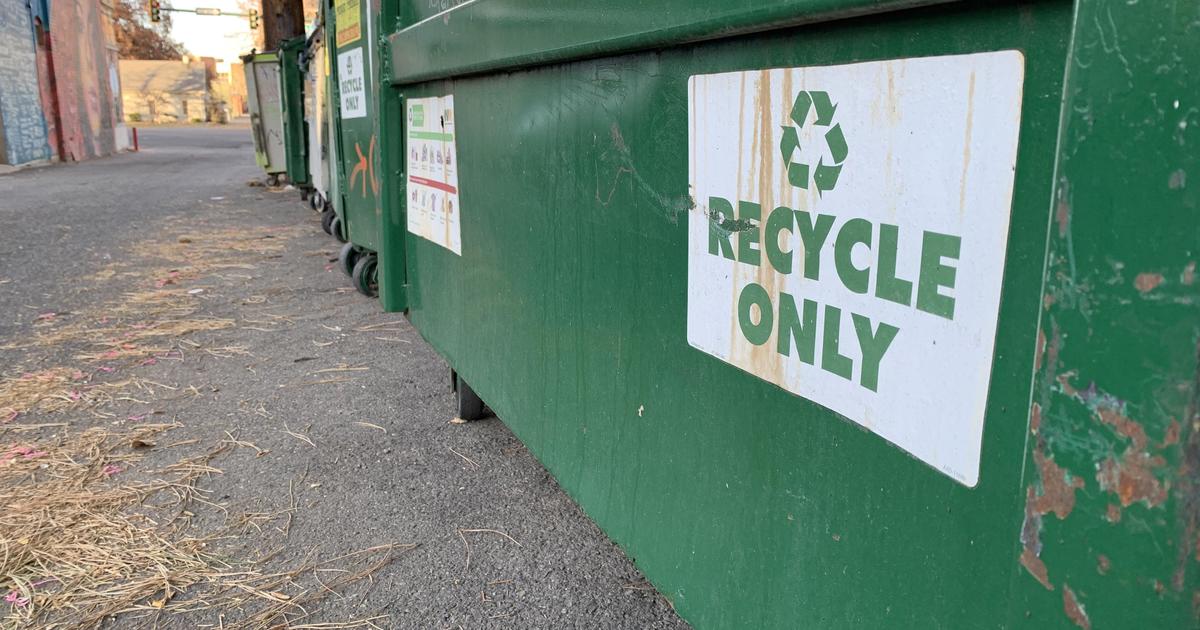Rules To Limit Effects Of Drilling Get Initial OK
DENVER (AP) - Colorado regulators gave initial approval Wednesday to rules meant to limit the effects of oil and gas drilling on homes, including a rule increasing the distance that rigs must be from occupied buildings.
The rules approved by the Colorado Oil and Gas Conservation Commission are expected to take effect this summer.
One requires wells to be 500 feet from buildings, up from a 350-foot buffer proposed by the commission earlier. Environmentalists wanted even bigger buffers, while farmers and homebuilders were among those saying the larger distances could limit development or hurt loan values on their land.
Also Wednesday, state health and natural resource officials announced the launch this summer of a study of how oil and gas emissions behave and their characteristics in areas along the northern Front Range, which has become a hotbed for drilling. A second phase would study possible health effects.
Environmentalists said the state-sponsored studies are too little, too late, and amount to using people as "lab rats" to determine if they may be suffering health problems because of drilling.
The actions came on the last day of a three-day hearing to consider updating the state's oil and gas rules.
Earlier this week, the oil and gas commission approved rules requiring groundwater sampling both before and after drilling to ensure drinking water supplies haven't been contaminated.
The rules that got preliminary approval Wednesday include requirements for operators who plan to drill within 1,000 feet of occupied buildings to meet new measures on limiting noise, odor, dust and emissions and to protect against spills. They'd also have to give expanded notice to residents.
Plans to drill within 1,000 feet of schools, hospitals or other high-occupancy buildings would trigger a hearing in front of the commission.
State officials said testimony during the rulemaking hearing reinforced views of industry and environmental experts that better science is needed for oil and gas emissions.
The study announced Wednesday "marks another important step in our aggressive efforts to ensure oil and gas development is conducted with the highest standards of environmental protection," said Mike King, executive director of the Colorado Department of Natural Resources.
Mike Chiropolos, who represented a coalition of environmental groups at the hearing, said heart-wrenching testimony from property owners who believe they have been harmed by drilling operations failed to sway regulators who are considering exceptions to the rules.
"Everybody agrees more studies are needed, but the state has not been doing its job. Regulators have been hearing from citizens of Colorado who don't like living in a science experiment while these studies continue. They don't like being lab rats," Chiropolos said after the meeting.
In May, a Denver district court judge threw out a lawsuit filed by a family from the Western Slope claiming oil and gas drilling caused illnesses. The judge said lawyers for the family failed to provide enough evidence of chemical exposure or any proof the drilling company was responsible for their burning eyes and throats, rashes and headaches.
King said Wednesday that strong science is needed along with strong regulation to build public confidence in an industry that is critical to Colorado's economy.
Last year, Colorado developed a national model for the disclosure of chemicals used in hydraulic fracturing fluids. Regulators also opened a water-quality database to the public and strengthened rules to reduce emissions.
Dr. Chris Urbina, executive director of the Colorado Department of Public Health and Environment, said his agency will work with Colorado State University on the study. It will be similar to an ongoing university-led study of oil and gas emissions in Garfield County on Colorado's Western Slope.
The first phase of the study is projected to last through June 2016. A second phase to develop a health risk assessment would begin in 2016.
Gov. John Hickenlooper, an industry supporter, is seeking $1.3 million from the Colorado Oil and Gas Conservation Commission's Environmental Response Fund to get the project off the ground. The money for that fund comes from oil and gas development.
- By Steven K. Paulson, AP Writer
(© Copyright 2013 The Associated Press. All Rights Reserved. This material may not be published, broadcast, rewritten or redistributed.)



